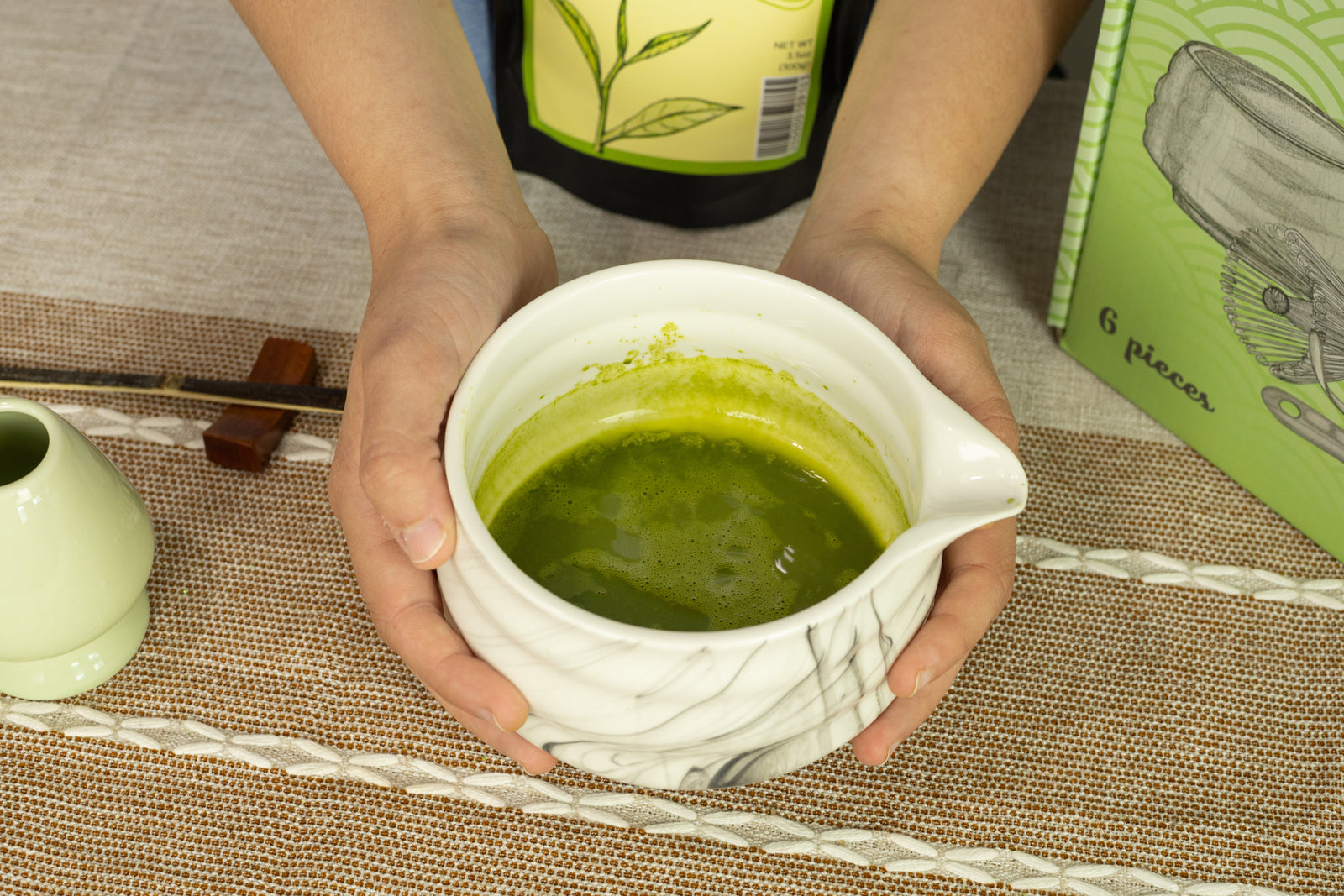
Matcha, a finely ground powdered green tea, is beloved for its vibrant hue and unique nutrient profile. Unlike brewed green tea, matcha lets you consume the entire leaf, delivering a more concentrated punch of antioxidants, amino acids, and plant nutrients.
What are the Health Benefits of Matcha?
1. An Antioxidant Powerhouse
Matcha contains catechins, most notably EGCG (epigallocatechin gallate), which act as antioxidants. EGCG has been studied for roles in supporting normal oxidative balance and healthy metabolic markers3. Actual catechin content varies by cultivar, grade, and preparation, but matcha typically provides a higher catechin density than standard steeped green tea because you consume the whole leaf.
2. Calm, Focused Energy (No Crash!)
Matcha naturally contains both caffeine and L‑theanine. This combination is associated with improved alertness and attention compared with caffeine alone, and many people report a smoother, more sustained energy. A typical 1–2 gram serving provides roughly 60–80 mg caffeine; L‑theanine can vary widely (about 6–30 mg per serving).
3. May support heart and metabolic health
Observational research links regular green tea intake with favorable cardiometabolic outcomes. Some controlled studies suggest green tea catechins and caffeine may modestly increase thermogenesis and support weight‑management efforts when combined with healthy diet and physical activity.
4. Potential cognitive and stress benefits
Small human studies of L‑theanine with caffeine, and a few using matcha, report modest improvements in attention and reduced perceived stress.4
5. Easy to Add to Your Diet
Matcha is versatile: whisk it with hot water for a traditional bowl, shake it cold for an iced matcha, or blend into smoothies and oatmeal. For the most tea‑forward flavor and minimal added sugar, enjoy it plain or lightly sweetened.
How much matcha per day?
- Most adults do well with 1–2 servings per day (about 1–2 grams per serving), depending on total daily caffeine from all sources.
- Sensitive to caffeine? Start with 1 gram or choose earlier in the day.
- Preparation tip: Use hot, not boiling, water (around 175–185°F), and whisk 15–20 seconds.
Who should be cautious?
- Caffeine: Most healthy adults can consume up to 400 mg caffeine/day from all sources1. If you’re sensitive, pregnant/breastfeeding (often advised to limit to ~200 mg/day2), or managing a health condition, consult your clinician.
- Iron absorption: Tea polyphenols can reduce non‑heme iron absorption6. If iron is a concern, enjoy matcha between meals or add vitamin C–rich foods to iron‑containing meals.
- Medications and conditions: Green tea can interact with some medicines (for example, stimulant medications)5. Those with liver disease should avoid high‑dose green tea extracts; standard culinary matcha servings are different, but avoid excessive intake or supplements without medical guidance.
- Sourcing and contaminants: Because you ingest the entire leaf, quality matters. Choose reputable matcha suppliers to minimize contaminants and ensure taste and freshness.
The Takeaway
Matcha isn’t a cure‑all, but it’s a flavorful, nutrient‑dense tea that can support an overall healthy lifestyle, offering antioxidant catechins, calm‑focused energy, and easy everyday preparation. Enjoy it mindfully and tailor your serving to your caffeine needs.
Sources
- https://efsa.onlinelibrary.wiley.com/doi/10.2903/j.efsa.2015.4102
- https://www.acog.org/womens-health/faqs/nutrition-during-pregnancy
- https://pubmed.ncbi.nlm.nih.gov/16582024/
- https://www.mdpi.com/2072-6643/11/10/2362
- https://medlineplus.gov/druginfo/natural/960.html
- https://www.ncbi.nlm.nih.gov/pmc/articles/PMC1412181/



